Pipe insulation can help protect your water pipes and the interior of your home. Whether you have pipes made of copper, steel, or PVC, it's important to know which type of insulation works best to help stabilize the temperature of these pipes. We've researched the best ones for the job.
Both foam and rubber insulation will work best for insulating plumbing pipes. Their main benefit is that they help minimize heat gains and losses in the pipes, which can be helpful when it comes to reducing your home's energy usage. And they can also help to control condensation as well.
The good news is that both materials will cost around the same price. So, either one would be ideal for your pipes. Continue reading to learn more about regulating plumbing pipe temperatures and the various types of insulation used for them.
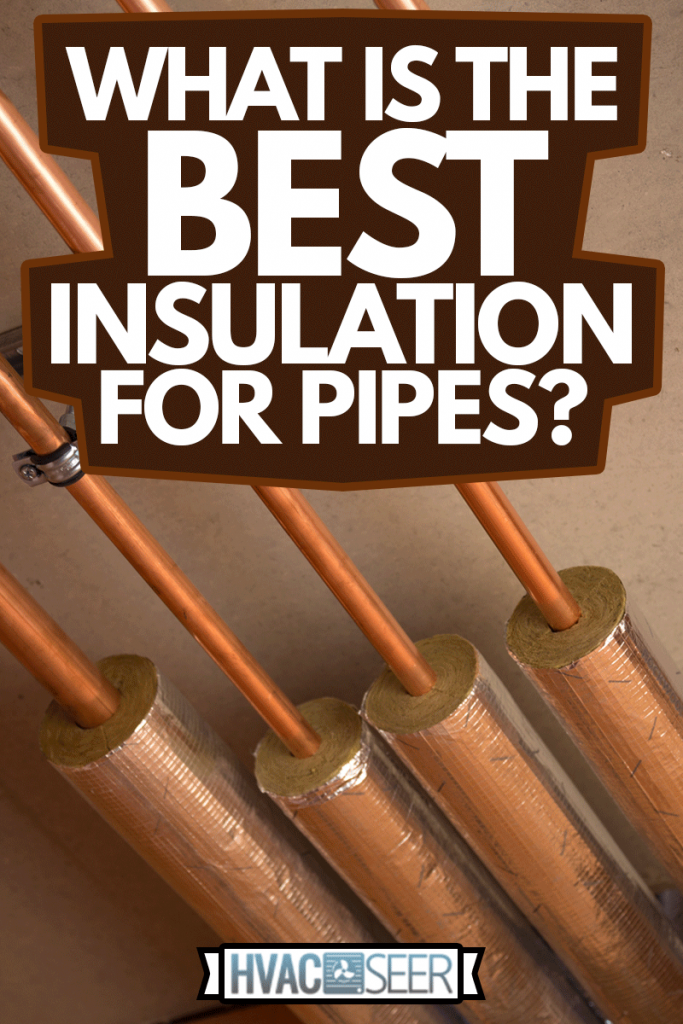
Benefits of Pipe Insulation
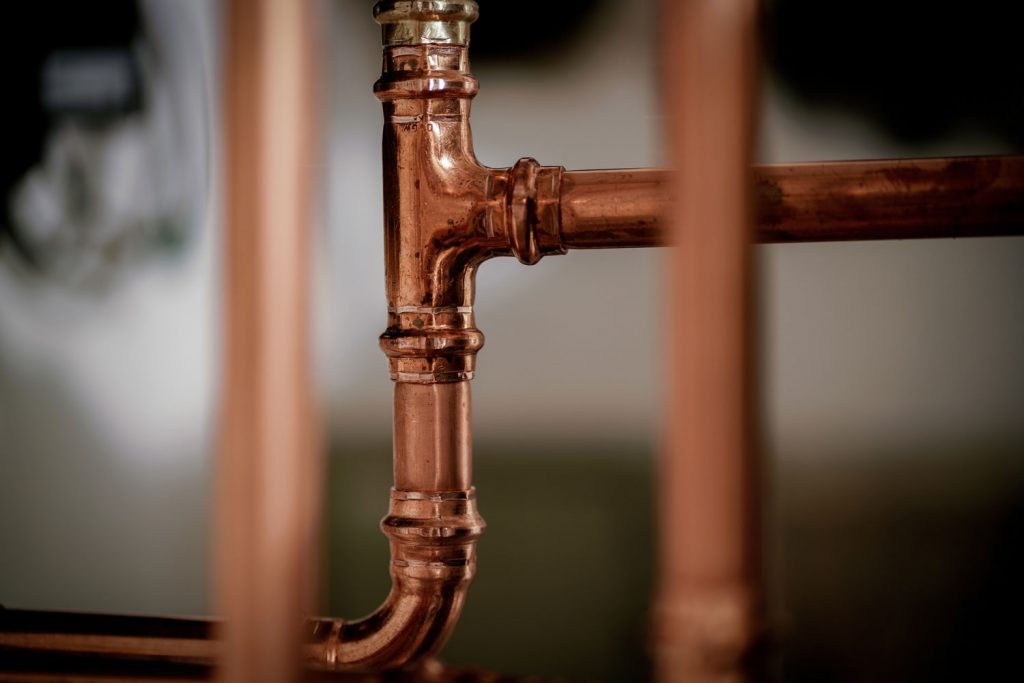
Temperature Regulation
As mentioned previously, one of the main reasons for insulating indoor and outdoor pipes is to minimize any heat loss or gain through the pipes. The pipes in your home are used for transporting water throughout the space. During this process, hot water can lose heat, and cold water will gain heat.
When the pipes are insulated, this inefficiency is reduced. As a result, you may find that your energy bills are lower, and you may not need to wait as long for your bathtubs or sinks to get hot water.
Minimizing Condensation
When the exterior surface of the plumbing pipes is cooler than the air surrounding them, condensation will develop. Pipe insulation steps in to help reduce condensation that may develop on the pipe. Without it, metal pipes are susceptible to leaking, corrosion, and rust.
The insulation is also beneficial in interior areas where people may habitat, such as the bathroom or laundry room. It helps to prevent injuries from physical contact made with pipes that are extremely hot or cold.
Pipe Noise Reduction
It's common for plumbing pipes to reduce random and seemingly strange noises as water and waste travel through them. Insulating these pipes with a dense protective material is an easy and effective way to reduce the additional noise in or around your home.
The Various Options For Pipe Insulation
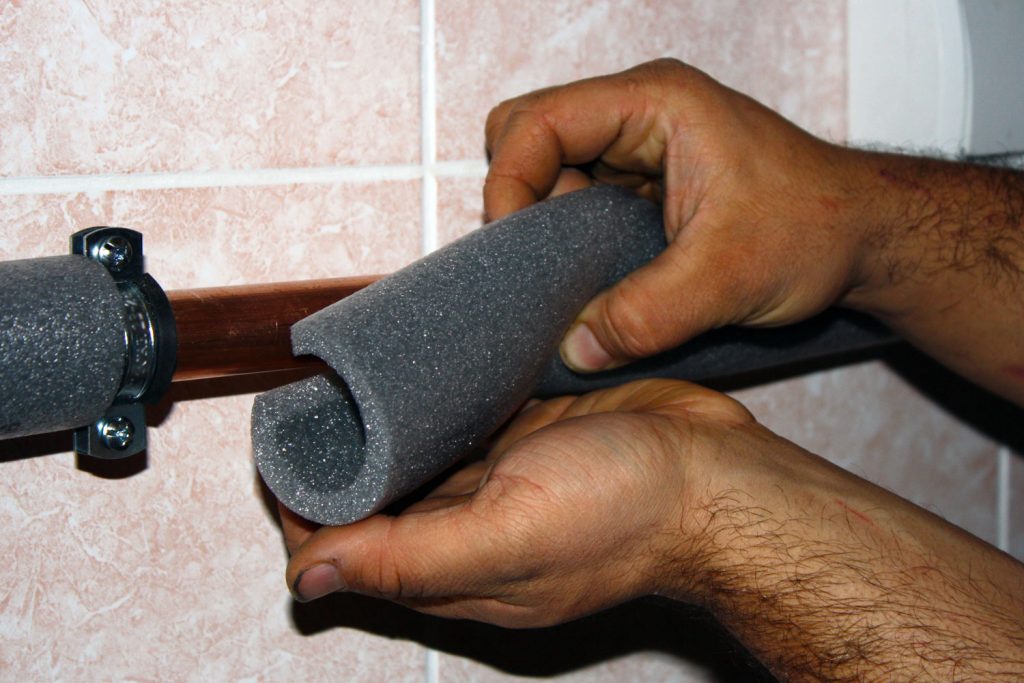
Whether you're insulating the pipes on the inside of your home or the outside, note that there are several different options to choose from. Let's look at the most common ones purchased by homeowners.
The best insulation to use will also depend on the type of pipe on which it will be installed and whether the pipes are located indoors or outdoors.
Polyethylene Foam
When it comes to pipe insulation, the most common type to use is polyethylene foam. Not only is this material fairly inexpensive, but it's very effective. This type of foam is one of the easiest to install.
It's designed with small slits cut on each end that allow you to easily slide it directly onto your pipe fittings. You can attach this foam wrapping to any type of pipe and use self-sealing adapters for better adhesion.
Rubber Insulation
Rubber pipe insulation is commonly used both indoors and outdoors, though it is often recommended for outdoor usage specifically. What makes this insulation so awesome is its ability to contract and expand with temperature changes. It also has exceptional durability and a low price point.
Rubber insulation is fairly easy to install and works well at preventing heat loss from hot water pipes. If you're looking for a pipe insulation material that can work on various appliances and other fixtures, rubber is a good one to choose.
Read more details about this rubber pipe insulation on Amazon.
Fiberglass (AKA “Glass Wool”)
Fiberglass insulation is another popular and effective material used for pipes. Just as you may figure, it's made from very tiny fibers of glass.
You may be familiar with fiberglass batts and rolls, which are commonly used in walls, floors, and attic areas. And this type of insulation material is just as effective on pipes.
If you're looking to reduce pipe noise, fiberglass is a good option to go with. And if you live in an area that is subjected to freezing temperatures in the winter, fiberglass pipe wrapping can definitely help to keep the pipes warmer. These sleeves can help prevent the pipes from cracking and rusting from condensation.
Check out this fiberglass pipe insulation on Amazon.
Mineral Wool
You may not hear of mineral wool insulation as often as fiberglass, rubber, or foam, but it's just as effective as the other materials, if not more.
Mineral wool insulation is manufactured using very small, fine pieces of mineral fiber which are woven together. You'll find this type of insulation commonly used in both homes and commercial facilities such as hospitals, hotels, and airports.
One of the biggest advantages of mineral wool insulation is its high fire-resistant. However, one of his biggest disadvantages is its higher price point.
On average, you'll pay about 15% to 20% more for mineral wool insulation than for foam or rubber. The density of mineral wool insulation also makes it very effective at reducing pipe noise.
Foil and Foam
Also known as “foil pipe wrap,” foam and foil insulation is also very effective on pipes and fittings. It helps to stop cold, leaking pipes from sweating and potentially corroding. And it also helps to dampen vibrations and other noises that may come from the pipes inside your home.
This type of insulation is also one of the least expensive options to choose, making it great for homes with large basements or attics.
Learn more about this insulation on Amazon.
Should I Insulate my Water Pipes?
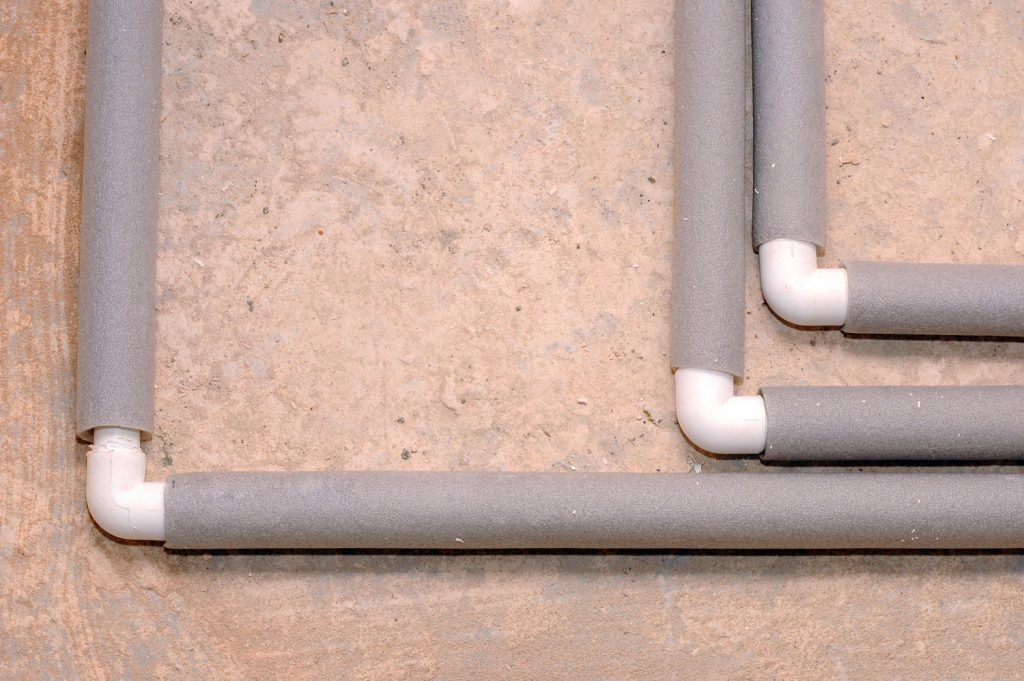
Yes. Insulating your water pipes is a great way to help regulate their temperatures, potentially reduce your energy costs, and reduce the chances that the pipe will burst. Keep in mind that the insulation cannot completely prevent the pipes from bursting. However, it allows them to endure colder temperatures for a longer period of time before they freeze.
Also, note that you don't necessarily have to spend a lot of money to insulate your pipes. For example, you can purchase a 12-foot piece of foam pipe insulation for under $20.
However, it's best to first take note of all the uncovered pipes in your home and their lengths. This way, you'll know exactly how much pipe insulation you'll need to budget for.
Read more details about this foam pipe insulation on Amazon.
Can you Put Insulation Around Copper Pipes?
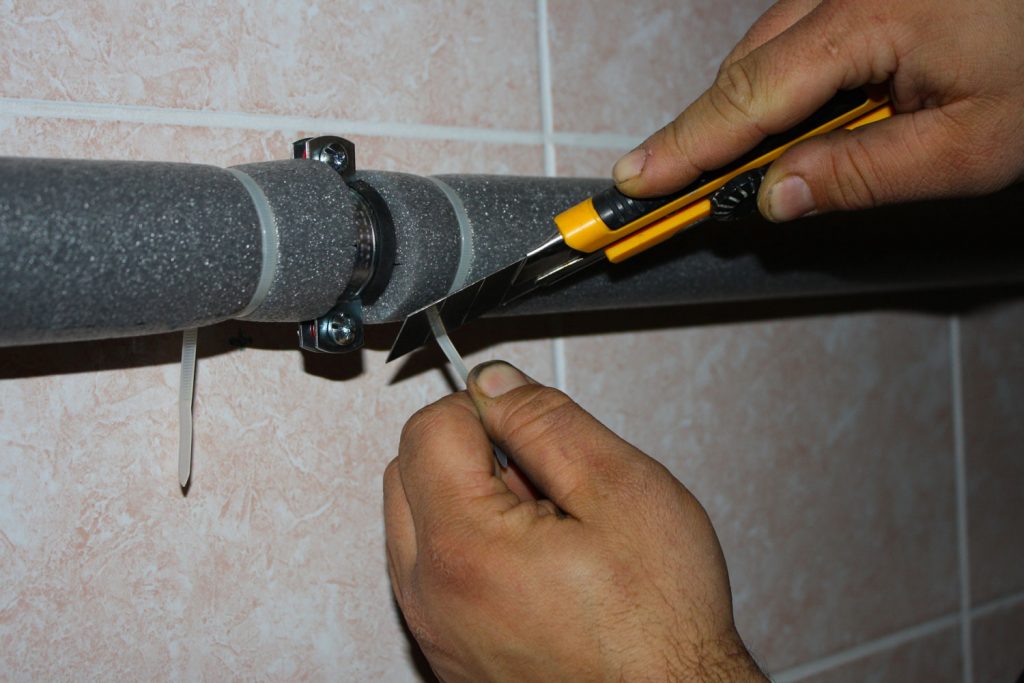
Yes. Copper pipes have great thermal conductivity and can easily lose heat attained from the water flowing through them. By insulating your copper pipes, you can reduce this heat loss by a few degrees.
It may not seem like a lot, but it can make a huge difference in how hot your water gets and the length of time that it takes to heat. Similar to other metal pipes, copper pipes are also susceptible to freezing and potentially bursting from extreme temperatures. Insulation can help reduce the likelihood of this occurring.
What Pipe Insulation has the Highest R-Value?
Foam piping has the highest R-value. The thick, dense nature of this insulation makes it one of the best types that you can use for your pipes. A piece of foam piping that's 5/8-inches thick has an R-value of about four.
Is foam or fiberglass insulation better for pipes?
Both materials will work wonderfully for insulating water pipes. However, fiberglass insulation will work better for hot water pipes. Foam and rubber insulation are more ideal for cold water pipes or colder outdoor temperatures.
Wrapping Things Up
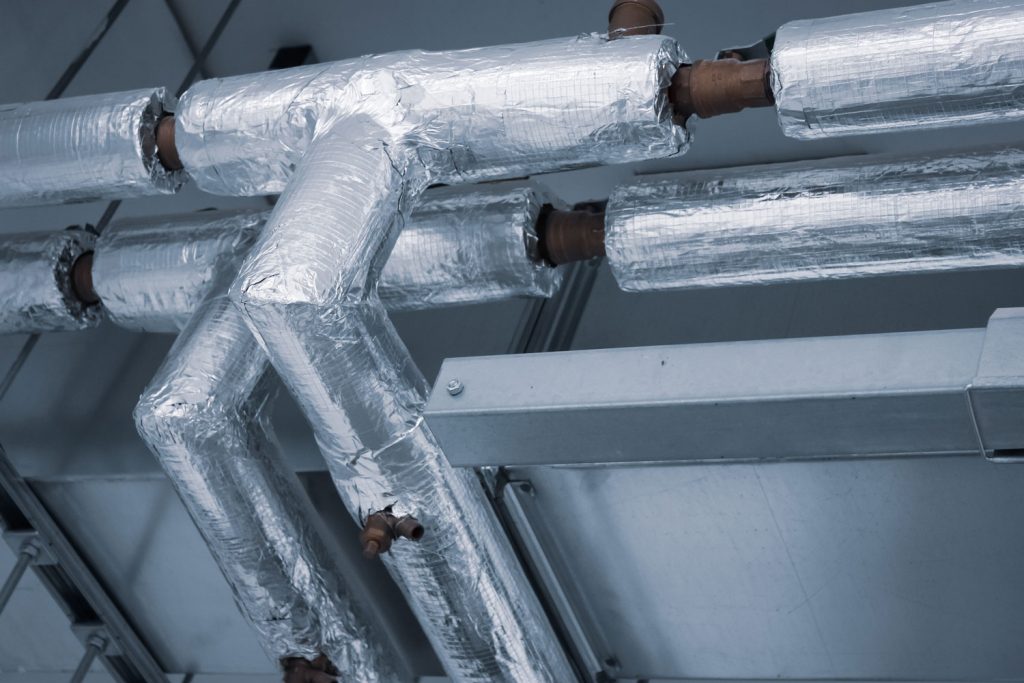
We hope this post has helped explain the best types of insulation to use for your pipe fittings. Remember, insulation can help regulate the surface temperature of water pipes, reduce their condensation, and potentially save on energy costs.
Rubber and foam pipe insulation will usually be the best and the least expensive insulation materials that you can use on your water pipes.
Before you go, be sure to check out our other posts:





Thanks for explaining the different benefits and types of insulation for pipes. I like how you said that pipes that are insulated will have reduced inefficiency. For maximum efficiency, I’d imagine that it would be smart to invest in pre-insulated pipes.